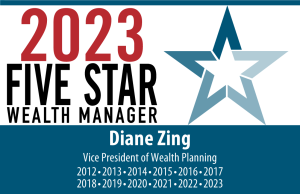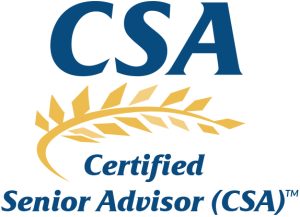
Wealth Management Assistant
"I take a holistic approach with financial planning to help my clients best prepare for the financial needs their lifestyle and businesses may require."

"I take a holistic approach with financial planning to help my clients best prepare for the financial needs their lifestyle and businesses may require."
Passionate about helping individuals, families & business owners
Enjoys spending time with her family and friends in the Rocky Mountains
Dedicated Rotarian who’s passionate about community service
Will video conference with clients to make it easier
“My goal is to work with my clients to help them build wealth and maximize potential return on investments while minimizing tax consequences. The goal is to be prepared for financial needs all through life, while creating the ability to retire when and how they want, with the lifestyle they expect.”
Diane’s financial planning practice focuses on meeting the needs of multi-generational families, entrepreneurs, non-profits, trusts, and individuals with a concentration on the financial complexities surrounding their goals for various stages of life. She uses a comprehensive approach and believes in a realistic assessment of today’s complex financial environment. Diane balances her clients’ goals in order to create strategies that maximize efforts to help preserve and sustain wealth to benefit multiple generations, and various philanthropic passions her clients might have.
Diane is an Investment Advisor Representative with Trilogy Capital, Inc. Diane has received the Five Star Wealth Manager award consistently over multiple years.*Refer to additional disclosure below for criteria of award & date received. Diane has been a top producer for her office since joining Trilogy. Prior to joining Trilogy, she spent several years as a successful senior business professional with expertise in account management, revenue & goal plan implementation, and project & team management. Her results positively impact short and long-term objectives.
When Diane isn’t focused on helping her clients, she is usually found spending time with her family and friends (and her dog). She is surrounded by various state parks and national forests “just outside her back door” in the Rocky Mountains, where wildlife and wilderness are abundant. She is often with one or both of her grown children and friends at various sporting events and concerts throughout the year.


_____________________________________________________________________________________________________________________
Certified Senior Advisor (CSA®) The Certified Senior Advisor (CSA®) is a credential awarded by the Society of Certified Senior Advisors. CSA professionals have a broad-based knowledge of the health, social and financial issues that are important to seniors, and the dynamics of how these factors work together in seniors’ lives. In order to become certified, professionals must pass background checks, accept terms or attestation, and must satisfy continuing education requirements. For more information about the CSA® designation, please visit the Society of Certified Senior Advisors.
Third-party rankings and recognition from rating services or publications are no guarantee of future investment success. Working with a highly rated advisor does not ensure that a client or prospective client will experience a higher level of performance or results. These ratings should not be construed as an endorsement of the advisor or by any client nor are they representative of any one client’s evaluation. Generally, ratings, rankings and recognition are based on information prepared and submitted by the advisor. A more thorough disclosure of the criteria used in making these rankings follows:
*This award was issued on October 1st of each year by Five Star Professional (FSP) for the time period December 12th of the previous year through June 30th of the issued year. Self-completed questionnaire was used for rating. Compensation was paid to the third-party entity (FSP) for the use of the logo in our firm’s marketing. This rating is not related to the quality of the investment advice and based solely on the disclosed criteria. In 2023, 2,580 Denver-area wealth managers were considered, with 247 (10%) named Five Star Wealth Managers. Previous years' statistics: 2022: 2,132 considered, 235 winners (11%); 2021: 2,158 considered, 206 winners (10%); 2020: 2,172 considered, 213 winners (10%); 2019: 2,146 considered, 262 winners (12%); 2018: 2,255 considered, 267 winners (12%); 2017: 1,716 considered, 287 winners (17%); 2016: 1,552 considered, 515 winners (33%); 2015: 3,008 considered, 517 winners (17%); 2014: 4,385 considered, 528 winners (12%); 2013: 2,083 considered, 607 winners (29%); 2012: 1,965 considered, 611 winners (31%). Wealth managers do not pay a fee to be considered or placed on the final list of Five Star Wealth Managers. The award is based on 10 objective criteria. Eligibility criteria-required: 1. Credentialed as a registered investment adviser (RIA) or a registered investment adviser representative; 2. Actively licensed as a RIA or as a principal of a registered investment adviser firm for a minimum of 5 years; 3. Favorable regulatory and complaint history review (As defined by FSP, the wealth manager has not; A. Been subject to a regulatory action that resulted in a license being suspended or revoked, or payment of a fine; B. Had more than a total of three settled or pending complaints filed against them and/or a total of five settled, pending, dismissed or denied complaints with any regulatory authority or FSP's consumer complaint process. Unfavorable feedback may have been discovered through a check of complaints registered with a regulatory authority or complaints registered through FSP's consumer complaint process; feedback may not be representative of any one client's experience; C. Individually contributed to a financial settlement of a customer complaint; D. Filed for personal bankruptcy within the past 11 years; E. Been terminated from a financial services firm within the past 11 years; F. Been convicted of a felony); 4. Fulfilled their firm review based on internal standards; 5. Accepting new clients. Evaluation criteria considered: 6. One-year client retention rate; 7. Five-year client retention rate; 8. Non-institutional discretionary and/or non-discretionary client assets administered; 9. Number of client households served; 10. Education and professional designations. FSP does not evaluate quality of services provided to clients. The award is not indicative of the wealth manager's future performance. Wealth Managers may or may not use discretion in their practice and therefore may not manage their clients' assets. The inclusion of a wealth manager on the Five Star Wealth Manager list should not be construed as an endorsement of the wealth manager by FSP or this publication. Working with a Five Star Wealth Manager or any wealth manager is no guarantee as to future investment success, nor is there any guarantee that the selected wealth managers will be awarded this accomplishment by FSP in the future. Visit www.fivestarprofessional.com
Scroll through to see each of the Advisors




Trilogy Financial Services, a Huntington Beach, California-based hybrid managing $3 billion, has acquired E. F. Heagan & Associates of San Juan Capistrano, California, and Mandichak Investment Retirement & Estate Planning, of Laguna Niguel, California.
Terms of the acquisitions were not disclosed.
The two firms add $160 million in assets under management to Trilogy’s total and brings more than 500 new clients. Read More.
Trilogy Financial, formerly part of the National Planning Holdings network bought by LPL Financial in August, says it will affiliate with the independent broker-dealer. The Huntington Beach, California-based group has some 150 financial advisors and over $2 billion in client assets.
Sure, one of the most popular reasons for buying life insurance is ensuring your family’s financial security after your homegoing. But the truth is, life insurance has many living benefits, too. Some term life insurance policies allow you to access a portion of your death benefit if you are ever diagnosed with a terminal, critical or chronic illness, which you can use however you wish.
Power of cash value
And permanent life insurance has the ability to accumulate cash value. You can use that money for whatever you like, such as for an emergency, a down payment on a house, or college—no questions asked! Or you can let the cash value continue to grow, which could supplement your retirement income.* The choice is yours.
Learn more about life insurance’s living benefits. Contact an Trilogy Advisor today.
Download this comprehensive blog as a concise one-page here: Life Insurance Myth
In the heart of a bustling town, Ernesto “Peanut” Folks stood as the owner of an auto body repair shop, where years of hard work and dedication had woven into the very fabric of his business. His vision for the future was crystal clear—passing the torch and the legacy of his shop to his son, Ernesto. This is the remarkable story of how life insurance, often overlooked, can emerge as a beacon of hope and resilience when we need it most.
Ernesto “Peanut” Folks was the proud owner of an auto body repair shop, and his plan was to one day pass along the business to his son, Ernesto. Life insurance was never on Peanut’s radar until an insurance professional spoke to him about how it could help him protect the business and its 10 employees.
Downturns in the business would sometimes make it hard for Peanut to make his premium payment. He considered dropping the policy but ultimately kept it in place.
When Peanut was diagnosed with advanced-stage lung cancer, his doctors gave him just six months to live. The treatments that followed kept him away from work, and medical bills mounted.
Given his terminal diagnosis, a provision in his life insurance policy called an accelerated death benefit allowed him to access a portion of the money from that policy while he was still alive. In the months before his death at age 49, Peanut was able to pay off his debts and turn the body shop over to Ernesto, fulfilling his dream.
Talk to an insurance professional about how life insurance can protect your business and your legacy.
Download this comprehensive blog as a concise one-page here: Life Insurance Keeps a Business in the Family
Paying taxes is inevitable. The key to being as efficient as possible about how much one pays in taxes requires careful consideration of the big picture. And while many people simply want to know if they can have a tax-free retirement, it really starts with being clear about how and when taxes get paid…and to defining what a “tax-free retirement” actually means. For example, if someone is striving to have income during retirement that is tax-free AT THAT TIME, then there are a plethora of investment and insurance products out there that could help defer taxes on earnings, and potentially, have tax-free withdrawal benefits for some types of accounts. But that doesn’t mean retirement is “tax-free”.
Let’s clarify what a few of the most common types of taxes are:
Income Tax – taxation on earned income can occur on many levels; local, state and federal. The amount a person would have to pay varies greatly on their situation. And, there are various types of tax credits that could affect the amount of taxes that would be paid on income. Any earned income that is deferred into a qualified retirement account generally means that taxes on that income won’t get paid at the time it is earned, but when that income is taken at a later date, during retirement, taxes are paid at that time. The idea that paying taxes on income later, when one might be in a lower income tax bracket, might prove more beneficial. But a) there is no guarantee what the tax rates will be in the future, and b) there may be several other factors with a person’s overall taxation that could affect what is perceived as a benefit. A tax professional is the best person to help folks evaluate what kinds of strategies are best for their overall situation. At the end of the day, SOME form of income tax will be paid, either when it is received upon earning, or when it is withdrawn from a qualified plan “down the road” in retirement.
What can be done to possibly reduce these taxes? Speak to a tax professional about what tax credits might apply, and also review with them if itemized deductions can play a role in reducing taxation.
Sales Tax – taxation occurs on state levels for various goods and services that get purchased. The percentage of taxation is usually based on the price of said goods and/or services. But that percentage charged can vary greatly from state to state, or even within different municipalities. There are a few states that don’t have any sales tax on most goods and services.
Excise Tax – taxation that is applied to specific types of goods; gas, cigarettes, beer, liquor, etc. These are typically nicknamed as “sin products”. Taxes received for these particular products are generally used to help raise money for bringing awareness to the potential dangers of these products.
What can be done to manage sales and excise tax? Not much. These types of taxes are very hard to “manage”. Changes in lifestyle; consumption of goods that fall within this category, will obviously affect the amount of sales taxes paid.
Property Tax – taxation that is applied to property owned. Taxes received tend to go towards local municipality needs. The amount of property taxes charged is usually based on a percentage of the value of the property.
What can be done to manage or alleviate property tax? Renting instead of owning might prove beneficial with alleviating property tax. However, there may be tax benefits also lost by being a renter instead of an owner. Again, a tax professional is best for helping to calculate what the tax benefits are for both scenarios.
It might not be possible to have a completely tax-free retirement, but by working with a financial professional and a tax professional, the ability to strategize investments and manage how taxation occurs could prove very beneficial. It’s not just about saving and investing…it’s about being as savvy as possible with the decisions along the way.
Some people believe that one of the most frustrating words in the financial world is the word “taxes”. But it doesn’t have to be…and it actually shouldn’t be. Understanding the world of taxation takes enormous amounts of education, understanding and application. The average person doesn’t necessarily want to become an expert on taxes, but they certainly don’t want to pay more than they have to, either. Hence the reason many people and businesses reach out for help. Finding a tax professional can be complicated; hoping to find the right kind of tax professional for the services needed tends to be the number one challenge.
When starting a search to find the right tax professional, there are basically two major things to consider. Firstly, it’s important to understand the differences between the types of tax professionals. Secondly, it’s important to ask the right kind of questions to help discern if a working relationship with a particular tax professional is a good fit.
Start with having a basic understanding of a few different types of tax professionals.
TYPES OF TAX PROFESSIONALS:
Tax Preparer – A tax preparer can help individuals, families, and businesses prepare tax returns. They cannot represent clients during an audit. Their role is limited to tax preparation. A large percentage of the general population might find that a Tax Preparer is a match for their filing needs.
EA – An Enrolled Agent (EA) has passed an IRS examination that puts them in a position to not only help clients prepare tax returns, but they can also represent their clients in the event of an audit. Generally speaking, EA’s may tend to have more thorough knowledge and understanding in regards to tax preparation than that of a Tax Preparer. Individuals, families, and business owners might find that an EA is helpful due to the complexities that their tax preparation needs may entail.
Tax Attorneys – Tax Attorneys can not only prepare tax filings, but they can also represent their clients during an audit, as well as represent clients in court proceedings. Tax attorneys play a significant role in helping their clients through complications with tax liabilities, responsibilities, and other issues that may arise.
CPA – Certified Public Accountants are tax professionals who have a degree in accounting or a related field. They have passed the state CPA exam, and are able to perform a myriad of services for their clients. They can prepare tax filings, represent clients during audits, prepare and certify audit statements. They cannot, however, represent their clients in court.
There are additional types of tax professionals, but the above mentioned tend to be the most widely sought after by individuals, families, business owners, non-profit entities, and others.
Secondly, it’s important to ask questions that are relevant for finding a professional that might be best suited for the specific needs at hand. Here are a few questions to consider when interviewing a tax professional:
QUESTIONS TO ASK:
When discerning which tax professional to work with, having a basic knowledge of the types of tax professionals might go a long way with helping to build a productive relationship, and subsequently, possibly more favorable tax solutions. Taxes are a major part of life, and having a strategy around how finances are built, managed, and maintained could possibly help significantly. It’s important to be responsible with taxes, and having a professional that can help discern taxation with efficiencies could have significant importance to overall financial planning.
We believe that real Life Planning is progress, not perfection.
Financial Life Planning is about actually starting — taking a few good steps in the right direction and then taking a few more.
Financial Life Planning is fundamentally about taking a few good steps in the right direction and then taking a few more. Trilogy Financial has established regional offices from coast to coast with the clear vision of helping millions of Americans pursue financial independence, every day.
Some advisors associated with this material are registered representatives of LPL Financial (LPL) and are Investment Advisor Representatives (IAR’s) for Trilogy Capital Inc. (TC). Some IAR’s of TC are not registered or affiliated with LPL. Securities offered through LPL. Member FINRA/SIPC. Investment advisory services offered through TC, A Registered Investment Advisor. TC markets advisory services under the name of Trilogy Financial (“TF”), an affiliated but separate legal entity. TC and TF are separate entities from LPL. The LPL Registered Representatives associated with this site may only discuss and/or transact securities business with residents of the United States.